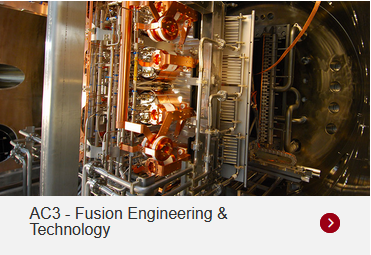AC3 - Advanced Course on Engineering and Technology (5 ECTS)
| |
Course unit English denomination | Advanced Course on Engineering and Technology |
Teacher in charge (if defined) | - Emanuele Sartori, University of Padova - other lecturers (national and international experts) |
Teaching Hours | 30h |
Number of ECTS credits allocated | 5 |
Course period | December 2027 |
Course delivery method | ☒ In presence ☐ Remotely ☒ Blended |
Language of instruction | English |
Mandatory attendance | ☒ Yes (75% minimum of presence) ☐ No |
Course unit contents | This course provides in depth introduction to the following engineering and technology subjects in the field of nuclear fusion: - Power plants and reactor design - Materials for fusion reactors - Design of tokamak components and integration - Superconducting magnets for fusion applications - Heating and current drive technology: Electron Cyclotron Resonance Heating (ECRH), Ion Cyclotron Range of Frequencies (ICRF) and Neutral Beam Injection (NBI) - Ultra-High Vacuum Technology - Tokamak operation and operation with deuterium/tritium |
Learning goals | The objectives of the Advanced Course are to provide the knowledge base of magnetic confinement nuclear fusion technology. Students enrolled in the PhD in Fusion Scienceand Engineering have heterogeneous backgrounds, and this course shall develop their competences in applied engineering including materials, design concepts, including numerical, modeling and experimental methodologies. Learning and understanding the main technological challenges of fusion devices is fundamental for researchers active in this field. |
Teaching methods | - Frontal teaching - Seminar lectures with the participation of including national and international experts |
Course on transversal, interdisciplinary, transdisciplinary skills | ☒ Yes ☐ No |
Available for PhD students from other courses | ☒ Yes ☐ No |
Prerequisites (not mandatory) | Basic knowledge of plasma physics (recommended) Basic knowledge of material properties (recommended) |
Examination methods (in applicable) | Two hours examination via moodle, including open questions/multiple choice questions/ numerical exercises. |
Suggested readings | INTERNATIONAL ATOMIC ENERGY AGENCY, Fundamentals of Magnetic Fusion Technology, Non-serial Publications , IAEA, Vienna (2023) |
Additional information | Presentations and lesson materials will be made available in moodle. |

